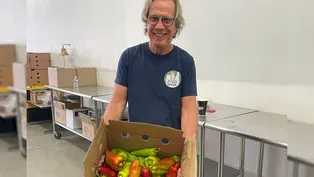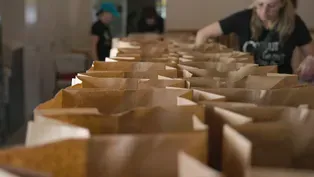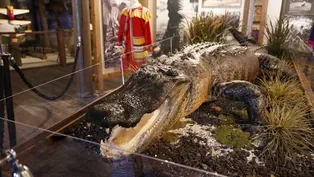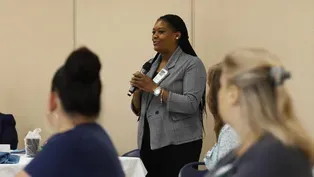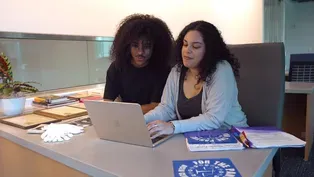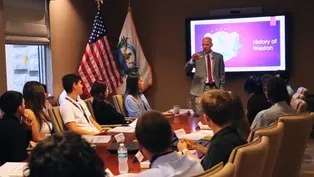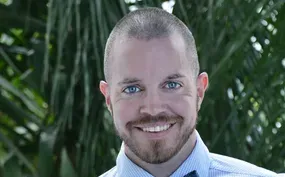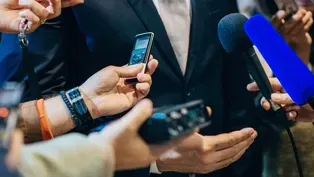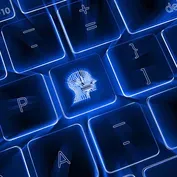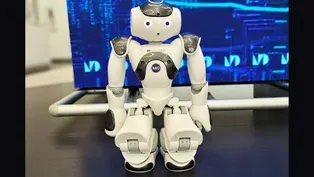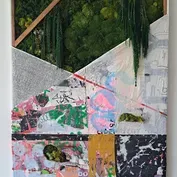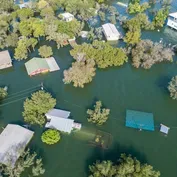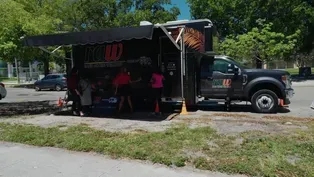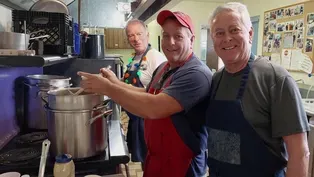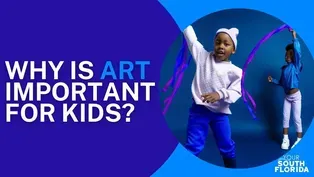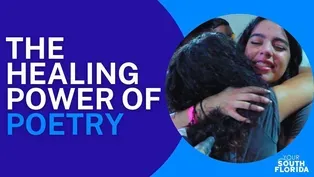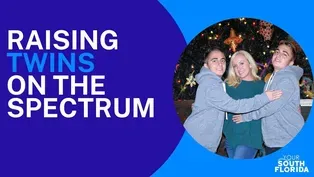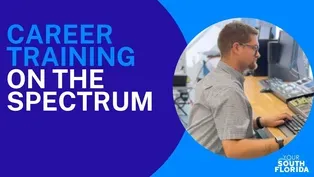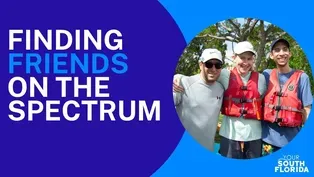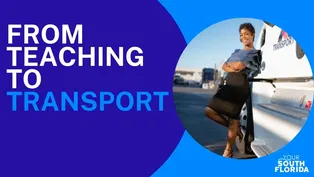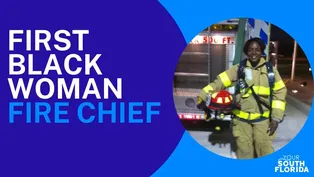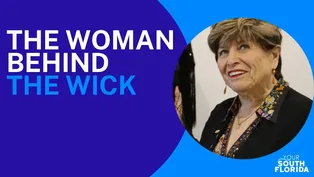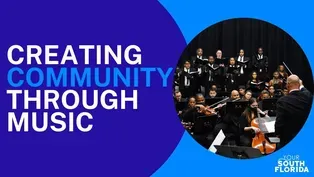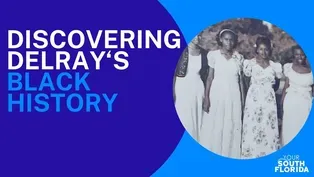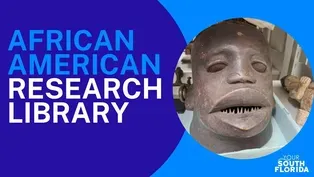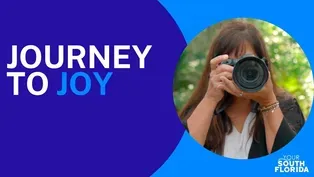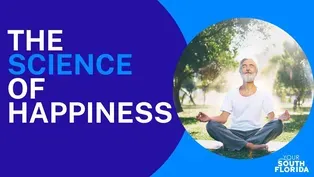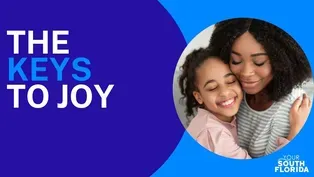Your South Florida
TIPS to Navigate AI Tech in Media
Clip: Season 8 | 9m 39sVideo has Closed Captions
Susan Jacobson gives us her take on the role of AI in the industry and tips for students.
Susan Jacobson, director of FIU’s Lee Caplin School of Journalism + Media gives us her take on the role of AI in the industry and tips for students to navigate the latest tech tools.
Problems with Closed Captions? Closed Captioning Feedback
Problems with Closed Captions? Closed Captioning Feedback
Your South Florida is a local public television program presented by WPBT
Your South Florida
TIPS to Navigate AI Tech in Media
Clip: Season 8 | 9m 39sVideo has Closed Captions
Susan Jacobson, director of FIU’s Lee Caplin School of Journalism + Media gives us her take on the role of AI in the industry and tips for students to navigate the latest tech tools.
Problems with Closed Captions? Closed Captioning Feedback
How to Watch Your South Florida
Your South Florida is available to stream on pbs.org and the free PBS App, available on iPhone, Apple TV, Android TV, Android smartphones, Amazon Fire TV, Amazon Fire Tablet, Roku, Samsung Smart TV, and Vizio.
Providing Support for PBS.org
Learn Moreabout PBS online sponsorship(Alene) Joining me now to share how Florida International University is preparing the next generation of journalists for the world of AI is Doctor Susan Jacobson, director of the Lee Kaplan School of Journalism and Media at FIU.
Welcome.
Thank you for being here.
(Susan) Thank you for having me.
(Arlene) So we all know that AI is emerging, and now schools have the challenge of implementing this in their curriculums and policies.
Tell us how that's going.
There’s kind of two groups of AI.
There's the generative and there's the assistive.
And right now we're having problems with the generative AI, AI that actually creates content.
And the place where we're seeing it and trying to figure out how to deal with it is where large language models can actually write papers and passages for student papers, and sometimes even just automated tools like Grammarly that they've been using for a long time, will now rewrite entire passages.
And when you're talking about students taking a class on learning how to write or they're being evaluated for their writing, you know, that's just not something that we can accept.
We’re learning now, just now how to how to deal with that.
(Arlene) This is a learning experience and a learning curve for professors and students.
Tell us how you tackle that part of AI.
(Susan) Okay so from the student perspective, our students, you know, they have busy lives, they have families, they have jobs, they have school on top of that a lot of times.
So sometimes it's very tempting to use a shortcut like a ChatGPT to write your paper.
And we understand that pressure, but they really should not be able to do that.
And they don't understand also that these large language models, they're terrible writers.
So they would be so much better writing their own copy instead of using the ChatGPT because their own voice is much better, much more authentic.
ChatGPT does things like it makes stuff up, it gives you fake references, you know, it's just not a good writing tool if you just use it, you know, do a copy paste.
And what we have at FIU is we're using some AI detectors.
They're not perfect, but they will show us.
They'll give a score to a student paper as to, you know, what's the likelihood that all or most of it was written by an AI.
And so we use that as a guide.
So generally speaking, we know that if the student has kind of a low AI score, then we're not going to worry about it.
But if they have a high one like close to 100, then, you know, we have to have a conversation with that student.
(Arlene) There are some advantages, though, to implementing this type of technology.
Tell us about that.
(Susan) So in in journalism and media there's a few things that are really great for our students.
One is any kind of AI tool that helps you with video or audio editing.
In the area of video editing, for example, Adobe Premiere is a great video editor that has incorporated some AI tools so you can literally shoot your own video, bring your video into this program, it generates a transcript, and you can edit the edit your video by editing the transcript.
Now, you may need to go back and make some adjustments and move things around.
But as a first pass editing tool, it's fantastic And I grew up, um, editing tape for video, and I saw the transition from there to to digital, which is much easier.
And now this from, you know, to just be able to use the transcript, it's a leap in improvement.
There's a similar there's similar products for audio.
There's a product called descript that will allow podcasters, for example, to take their very long, um, audio sessions and, you know, edit them pretty quickly using the transcript.
Those tools are fantastic, and I encourage students to use them.
Um, the AI tools have also been used to generate code for websites to do some little programming, web based programming, you know, it'll help generate some code for you.
I think all of that is is perfectly okay.
The image editor I is the still image editors.
There kind of a mixed bag.
Sometimes they're okay to use because like if you're doing a flyer, for example, or a social media post and you need a graphic, they can sometimes generate a perfectly okay image.
The situation there is you just have to look at it carefully, you know, to make sure there's no obvious errors like extra fingers or misspelled words.
(Arlene) You know.
There is that idea where people do have these deep fakes that we've seen.
That is I feel a danger of I and I'm sure as a, you know, someone who leads a college in this world, we have to be careful with that.
What are your thoughts on deep fakes and the negative aspects of AI?
(Susan) So specifically talking about deep fakes.
One thing I can say is that the video deepfakes like if you've seen there's been some examples of Obama, you know, saying crazy things, the video of a real person.
It's not that great at this point.
It's going to get better though, right?
I think it kind of falls back to sort of some basic media literacy principles of being able to check your sources.
Where did this come from?
If it seems like it's fake, it might be fake, especially if it makes you angry or makes you sad.
Or you go like, oh, what is that about?
I can't believe that that's always a cue for you to check, to make sure that you know, what you're looking at is legitimate.
(Arlene) And journalism students, what's their feedback?
How do they feel?
Is it a mixed bag?
I know when I say it's a mixed bag, for me.
(Susan) It is a mixed bag.
I would say again, the editing tools are really helpful.
The video editing tools, the audio editing tools, um, the other tools, again, students are kind of naive that they're not completely sure of, you know, what the limitations of these tools are at this point?
Because we're early in the game, I think they will become more savvy as time goes by, you know, and they'll be able to use them more wisely.
Um, and, and part of what we plan to do is to figure out how to integrate good use of AI tools, especially things for data analysis, for doing some content generation under specific circumstances, like writing a summary, um, under specific, but in, in a specific circumstance.
And part of since they're journalism students, it's very important to excuse me to be very transparent with your audience about, you know, what the source of your material is.
If it is generated by an AI, you want to let your audience know that.
(Arlene) Tell us about some other cool technologically forward things happening at FIU.
The immersive studio for Altered Reality.
That sounds so.
Cool.
(Susan) Yes.
The immersive studio for Altered Reality is our immersive media facility.
We just built it a couple years ago, and we have students in our new game and animation program that use it to create their projects.
We have what's called a volumetric studio.
And what this is, if you're familiar with Pokemon Go, you know how you can see Pikachu in your in your environment?
Well, the Volumetric studio is basically a series of cameras in a circle that creates a 3D video.
So it could be a person, it could be an object.
And then you can take that video file.
We call it an asset.
And you can you can see it like you would see a Pokemon Go character.
You can insert it into an immersive environment like Unity or Unreal, which is the platform that they use for games.
You know, you can use it in films and animation, but and it's a complete 3D character.
So, so yeah, so we're working on that and we're, we're trying to figure out how to integrate that into the journalism business.
Um, we haven't gotten there yet.
I'm trying to.
Think of the ways.
But we're working a second.
I'll get back to.
You on that.
Yes.
Data visualization, for example.
Yes.
For sure.
Yeah.
(Arlene) You have the big networks.
They show all the data and will be pointing at it.
So I can see maybe something happening with that, making it more compelling and interesting to take in a lot of data.
(Susan) Yes.
And TV.
(Arlene) Usually.
(Susan) TV networks are using what's called virtual sets.
And they use these technologies.
They'll use Unity or Unreal, which again is like a game platform to create sets that aren't really there but really look like they're there.
(Arlene) It's great that the students are on the forefront of all this and they're learning this.
But can journalism survive?
AI (Susan) I absolutely believe that journalism will survive.
AI there's no there's no substitute for actual on the ground reporting.
One of the things that we are seeing, however, is increasingly, if you ask anyone under the age of 40, surveys show that a lot of them say that they get their news from social media, and they're not following the New York Times on Instagram.
Often they're following what we call informal information providers.
These are influencers and podcasters, you know, who often have a topic that they talk about on a regular basis with their audience, and they're not necessarily trained in the norms of journalism.
One of our missions is to help these informal information providers understand better the norms of journalism and how to be good information providers, and also to prepare, prepare our journalism students to be these kinds of informal information providers.
(Arlene) Giving news first and then learning how to do news second.
That's so crazy to me.
But the responsible implementation of AI, I think, is the key.
Yes.
Thank you so much for joining us, Doctor Jacobson.
(Susan) My pleasure.
Thank you for having me.
(Arlene) Absolutely.
Support & Food for Broward Seniors and Grandfamilies in Need
Video has Closed Captions
In Broward County, many seniors are facing food insecurity. (7m 51s)
Palm Beach County Food Bank’s Critical Role in Fighting Food Insecurity
Video has Closed Captions
The PBC Food Bank works to provide nutritious meals and vital support. (9m 26s)
How Rescuing Food Supports Families & Fights Climate Change
Video has Closed Captions
Each year, millions of pounds of food are wasted while many South Floridians face hunger. (9m 57s)
Protecting the Everglades with the Miccosukee Tribe
Video has Closed Captions
For the Miccosukee Tribe, the Everglades is more than just land; it’s a vital part of their identity (8m 32s)
Inside Miccosukee Culture & History
Video has Closed Captions
Pam Giganti interviews William ‘Popeye’ Osceola and Talbert Cypress about the Tribe’s history. (11m 10s)
Transforming The Glades Through Leadership and Community Engagement
Video has Closed Captions
A program by the Belle Glade Chamber of Commerce brings people together to address community issues. (7m 16s)
How FIU Honors Mayor Ferré’s Legacy
Video has Closed Captions
FIU’s Maurice A. Ferré Institute for Civic Leadership helps to create a more engaged community. (8m 4s)
Go Inside the Program Turning High Schoolers Into Civic Game-Changers
Video has Closed Captions
The City of Weston is educating high school students about the inner workings of local government. (7m 56s)
Spotting Suicide Warning Signs: What You Need to Know to Help Someone in Crisis
Video has Closed Captions
Alan Mednick joins us in studio to share how to talk about the warning signs for suicide. (9m 18s)
From Darkness to Light: A Journey to Self-Acceptance & Mental Wellness
Video has Closed Captions
Watch the inspiring story of Caiden Smith's journey to self-Acceptance & mental wellness. (8m 13s)
Emotional Support & Resources for Loved Ones Left Behind After Suicide
Video has Closed Captions
The aftermath of a suicide can be an overwhelming and traumatic experience for those left behind. (8m 8s)
TIPS to Navigate AI Tech in Media
Video has Closed Captions
Susan Jacobson gives us her take on the role of AI in the industry and tips for students. (9m 39s)
FAU Researchers Test AI Limits & Risks
Video has Closed Captions
FAU students & researchers are using the power of AI to develop innovative ways to study the brain. (10m 13s)
Discover the Latest AI Programs @ Miami Dade College
Video has Closed Captions
Miami Dade College is diving head-first into AI with programs for all interest levels. (7m 49s)
Video has Closed Captions
Trees are vital to keeping our neighborhoods cool. (7m 7s)
Video has Closed Captions
The threat of flooding is becoming the new normal in South Florida, well outside of Hurricane Season (12m 25s)
Video has Closed Captions
As temperatures rise, it’s important to protect your pets too. (3m 40s)
Video has Closed Captions
Prolonged exposure to extreme heat poses many health risks. (4m 48s)
New Magazine Creates Stronger Community for South Florida's LGBTQ+ Women
Video has Closed Captions
Women owned SkirtSoFLo is a new magazine made for the South Florida LGBTQ+ women’s community. (6m 7s)
Mobile Units Brings Life-Saving HIV Healthcare into At-Risk Communities
Doctors from the University of Miami are creating more equitable approaches to HIV prevention & care (12m 44s)
A Beacon of Hope for Ft. Lauderdale's LGBTQ+ Community
Video has Closed Captions
For 70 years the Church of Christ Fort Lauderdale has been known for its inclusivity. (7m 2s)
How The Arts Help Child Behavior
Video has Closed Captions
Studies show that kids engaged in the arts have fewer problems interacting with others. (11m 44s)
How Poetry Can Provide Comfort and Boost Your Mood
Video has Closed Captions
Research shows that poetry can provide comfort and boost mood during periods of stress and trauma. (8m 13s)
Single Mom Gives Hope to Autism Families & TIPS to Navigate Resources l Your South Florida
Video has Closed Captions
Mom Candi Spitz knows all about the difficulties in navigating autism resources. (7m 35s)
New Higher Ed Program Gives Students with Autism a Chance at Independence l Your South Florida
Video has Closed Captions
Many adults with autism face significant barriers to finding gainful employment. (7m 27s)
Creating Safe Spaces & Friendships for Adults with Autism l Your South Florida
Video has Closed Captions
The Social Cog is creating safe spaces for young adults on the autism spectrum. (10m 51s)
Transporter Trudie Ives Talks Business & Helping Women
Video has Closed Captions
Trudie Ives discovered the world of transportation and hasn’t looked back. (9m 41s)
Fire Chief Trailblazer Samantha Whitehorne
Video has Closed Captions
Samantha Whitehorne is a fire chief for the Broward Sheriff’s Office. Watch her story. (6m 29s)
Backstage at THE WICK with Business Maven Marilynn Wick
Video has Closed Captions
Marilynn Wick has spent her life blazing a trail in the business world. (7m 43s)
Showcasing Classical Music from the African Diaspora
Video has Closed Captions
In 2021, Portia Dunkley co-founded the New Canon Chamber Collective. (11m 18s)
African American Research Library and Cultural Center
Video has Closed Captions
Take a tour of Broward County’s African American Research Library and Cultural Center. (7m 40s)
Local Photographer Shares Her Journey to Finding Joy
Video has Closed Captions
Sonya Prather set off on a journey of self-discovery that has enabled her to find true joy (7m 14s)
Happiness Coach Rob Mack on Positive Psychology & Happiness
Video has Closed Captions
Author Robert Mack and host Arlene Borenstein discuss Positive Psychology. (9m 37s)
Expert TIPS to Finding Your Joy from Author Lisa McCourt
Video has Closed Captions
Author Lisa McCourt gives tips to finding true joy in your life. (11m 11s)
Providing Support for PBS.org
Learn Moreabout PBS online sponsorshipSupport for PBS provided by:
Your South Florida is a local public television program presented by WPBT

